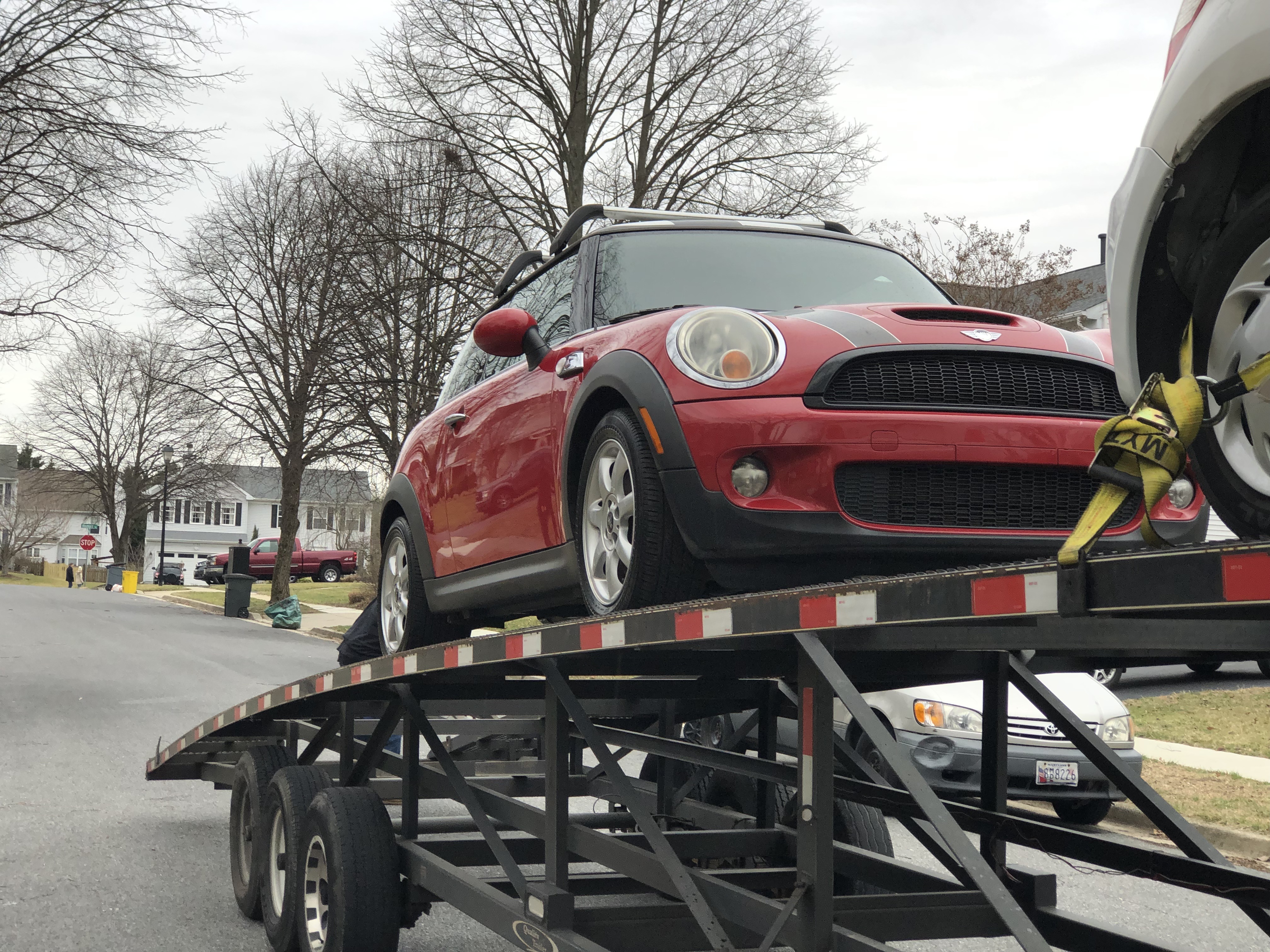Whether you're a first-time car transport customer or a repeat industry client, finding the right car shipping services for a given situation can be complicated. You must consider the time of year, the type of car you're shipping, your desired delivery window, and many other factors to single out a vehicle shipping company that works for you.
In addition, it is important to consider the reputations of the different car transport services you're considering to ensure your work with a safe, secure company worth your time and money.
To help you send a vehicle from one city to the other, we've created this guide on how to choose the right car transportation service. We'll cover everything you need to know so you can make the best decision for your wallet and your vehicle.
Find Car Transport Companies that Offer the Specific Services You Need
Before you Google “car haulers for hire near me,” come up with a list of the essential vehicle transport services you'd need from an auto transport company and use it to guide your search.
There are two types of common car carriers that door-to-door auto transporters use to transport vehicles: enclosed carriers and open carriers (including multi-carriers). Open carriers are a great option for most vehicle shipping customers. You save money because drivers can service multiple vehicles on the same shipping route, and open car shipping can often be more efficient for those on a tight schedule.
On the other hand, open auto carriers leave your vehicle exposed to harsh weather and road hazards. If you want to transport and protect a luxury or antique car or any vehicle above $60,000 in value, it’s best to look for carriers with enclosed trailers.
Also, if you’re moving to a new country, you'll need an auto shipper that can handle the logistics of international shipping. For concierge services, you'll need to search for auto shippers offering premium door-to-door pickup and delivery.
Once your criteria are nailed down, look for trusted auto transport companies that offer what you need. A car transport broker like Nexus provides a distinct advantage because they can connect you with almost any vehicle transportation service you need.
Regardless of whom you choose, be sure to research each car transport company thoroughly, grabbing quotes online from their car shipping cost calculators or calling them for an in-depth consultation.
Check Customer Ratings and Reviews
Business review sites like the Better Business Bureau (BBB) and third-party sites like TrustRadius provide valuable and unbiased reviews and ratings for car transport companies. Word of mouth is the best way to separate reliable car haulers from others, so be sure to rule out any companies with a majority of complaints and negative reviews.
When reading online reviews, look for a car transport company that values quality service and efficient responses. The car hauler should also stress professionalism and repeatedly demonstrate commitment to exemplary customer care. This includes transparent transport brokers known for assigning the best drivers possible to each shipment.
Also, look to people you know who can recommend an auto transporter. Even if they haven’t used one themselves, they may know someone who has and can recommend a reliable company.
Verify Their Motor Carrier Number
The United States Department of Transportation (USDOT) requires car carriers to have an eight-digit USDOT number to transport goods across state lines. If the company is legitimate, it will openly showcase this number on its website and share it with you on request.
Car transport companies must also have a Motor Carrier (MC) number, a six-digit number issued by the Federal Motor Carrier Safety Administration (FMCSA). The MC number can be used to check a company's operating status, inspections, and mailing addresses.
Always verify the USDOT number through the USDOT's Electronic Records on the FMCSA website. This site also maintains a list of sites that provide easy access to important safety-related information. To search, all you need is the company's MC number, USDOT number, or name.
The FMCSA cautions against scheduling with any broker or auto transporter with a fake MC number. If you are the target of an auto shipping scam, you can file a complaint or call the FMSCA helpline.
Choose Companies That Emphasize Complete Car Inspections
Any car hauler you work with should have a clear policy about inspecting vehicles before loading and unloading. Your car transport driver should inspect your vehicle's interior and exterior for previous damage before pickup and finalizing delivery. Your vehicle's preexisting and final condition should be recorded on the Bill of Lading document, which you should check to verify accuracy.
You should only sign off on the BoL if you agree with the findings of each vehicle inspection. Make sure your driver signs too. With dual signatures, you can prove your vehicle's previous condition during an insurance claims process. Keep a copy for your records in case you uncover damage after your driver's departure.
Also, note that the USDOT requires a car shipping driver to have a key for every lock in your vehicle. If you don't have a set of spare keys, be sure to grab some and hold onto your primary set.
If you can't be present during the vehicle inspection, send a trusted friend or family member to the site. Be sure to inform them about all previous damage to the vehicle and the processes your car hauler must complete before signing the Bill of Lading. Two authorized signatures should be given for each inspection process.
Learn More About Their Insurance Plans and Cancelation Policy
Each independent auto transporter assigned by a trusted car transport broker should be insured and bonded. If your vehicle or the car transport driver is involved in an accident or incident during transport, your car will be covered for in-transit damage.
Look closer at the car transporter's insurance policy and learn what it covers. Auto carriers have limited liability. If your vehicle is damaged in transit, the insurance adjuster will determine the actual cash value (ACV) – not necessarily the exact replacement cost.
In addition, some carrier insurance doesn’t cover “Acts of God,” including natural disasters like tornados and hurricanes. Rare as these events are, it pays to have this coverage in high-risk areas like coastal and Great Plains towns. You could be charged a massive bill if you don't have comprehensive auto insurance policy coverage to cover these gaps.
Top auto transport companies such as Nexus Auto Transport vet drivers for high-value insurance policies. In addition, Nexus offers additional contingency cargo insurance to help bridge any gaps within your independent auto transporter's policy.
You should also review the auto transporter's cancellation policy if it exists. Inquire whether they have a deadline for canceling shipping service and what fines you may incur. If you're unsure when your car will be ready for shipping, call the company's customer support staff to ask how you can cancel or reschedule.
Some carriers have penalties for canceling a reservation without prior notice. Others may allow you to reschedule the shipping for free. Either way, get the terms and conditions of the cancelation policy in writing before you schedule a shipment.
Inquire About Car Transport Tracking Systems
It makes sense that you want updates about your vehicle's status during transport. Your car is a top priority. The best auto transporters partner with customers to offer car tracker updates, whether that involves an actual GPS tracking system or a direct line of communication with your driver.
Your car transport company should have a dedicated customer service team who can assist you in tracking your shipment, whether with a tracking number or a call to your trucker. Nexus Auto Transport will contact your driver for updates and provide you with relevant contact information so you can speak to your auto transporter.
Remember that truckers cannot legally answer calls while your vehicle is moving in transport. A good car carrier will work hard to return your call promptly once they've stopped for rest.
Auto tracking measures vary in the car shipping world. Some car shipping providers have GPS systems fitted in their carrier vehicles. Tracking will only be possible if the driver is willing to activate GPS tracking on the truck.
The majority of vehicle transportation companies use traditional tracking methods, such as phone calls. In truth, traditional tracking services can be even more effective because they provide personalized updates not provided by a mere point on a map.
Choose Between Local & Nationwide Car Transportation
Generally, you should only book a shipment with a local car transporter for moves of 200 miles or less. With one of these providers, you'll often pay more to transport a car from state to state or across the country. Oftentimes, they won't even entertain shipping a car from coast to coast.
One advantage of working with a nationwide car transport broker is the value you get for long-distance moves. The best national car transport companies partner with experienced independent trucking partners to find customized, personalized solutions for your vehicle transport needs. Because these companies cast a wider net, they can get quicker service on long-distance shipping routes and can often offer you cheaper prices altogether.
Nationwide vehicle transportation companies usually have more of a review imprint. You can dive deeper into their processes and find out what customers really think of their car transport services. If you ship with a relatively unknown local vehicle transporter, you may not have a clear picture of what they offer and how quality their services really are.
Consider Pricing & Don't Always Go for the Cheapest Car Transport
There's a golden rule for customers that spans pretty much every industry imaginable: You get what you pay for.
Beware of car transport companies that always promise the lowest prices for shipping a car. The shipping market can only be gauged in this way if hidden fees or corners are being cut. The market dictates the real cost of transporting a car, from the current supply and demand for services to current fuel prices.
Bargain-basement vehicle transport services may be unreliable, more costly than promised, or even scammers. Be sure to check reviews, verify USDOT information, and do your due diligence before signing any agreement with a car transport company.
If you really want to get the best deal for your shipping buck, use an accurate car transport cost calculator like the one provided by Nexus Auto Transport. These calculators offer fair representations of current market prices, allowing us to compare and determine what's a real promise and what's not.
Ask How To Pay For Car Transport
An auto transporter usually asks for a deposit upfront, with the remainder due at delivery via cash or an online payment app. Some companies offer payment plans to match your car transport budget. Learn about their transaction, late payment, or installment fees before scheduling an order.
Use a trustworthy car shipping calculator to get an accurate price quote. Most car transport companies offer free quotes to attract customers, so you should get and compare a few quotes.
Car hauling prices vary based on the mileage covered by the truck or trailer. Auto transporters typically charge lower per-mile rates for long-distance moves and higher per-mile rates for shorter distances. Since enclosed carriers offer more security and protection, they can cost about 40% more on average than open carriers.
Factors like size, location, season, and timeline affect the price of car hauling services. A heavier vehicle may cost more to ship, and it may be expensive to ferry a car to a rural location. You can save money in winter when the demand for car shipping services is low, but winter weather can create delays and challenges.
Find out About the Shipping Paperwork Required
The common documents required during shipping include the Bill of Lading, insurance terms and conditions, and the title and registration. An auto transporter may also need a photo ID and proof of insurance.
If you're having an agent receive your car on your behalf, you may need an absent owner authorization form. If you're shipping a vehicle with a lien from outside the US, you may need a lienholder authorization form.
The Bill of Lading is a piece of paperwork that acts as proof of delivery in the shipping process. It also records your car's condition during pickup and delivery. Without it, you cannot prove that your car was damaged during transport. Be sure that there are two signatures for both pickup and delivery, one from you (or your representative) and one from your trucker.
Be sure to keep your car transport company's terms and conditions on hand in case there are any discrepancies with the services you receive. Try to keep all your paperwork organized for quick retrieval during the process.
Work with a Car Hauler Broker to Ship Your Vehicle
Top car transport brokers like Nexus Auto Transport are built to make life easier for their clients. The best companies cover all of the bases listed above, providing a safe, efficient, and high-quality car transport service.
Let a car hauler broker like Nexus Auto Transport do your work. We’ll take care of every step of the process, from finding and coordinating top carriers to monitoring transportation. We are an A+-rated, BBB-accredited shipping provider with over 500,000 vehicles serviced and over 5,000 5-star reviews.
Get your free quote now or call (224) 218-2949 for around-the-clock assistance. It is our pleasure to serve you.



